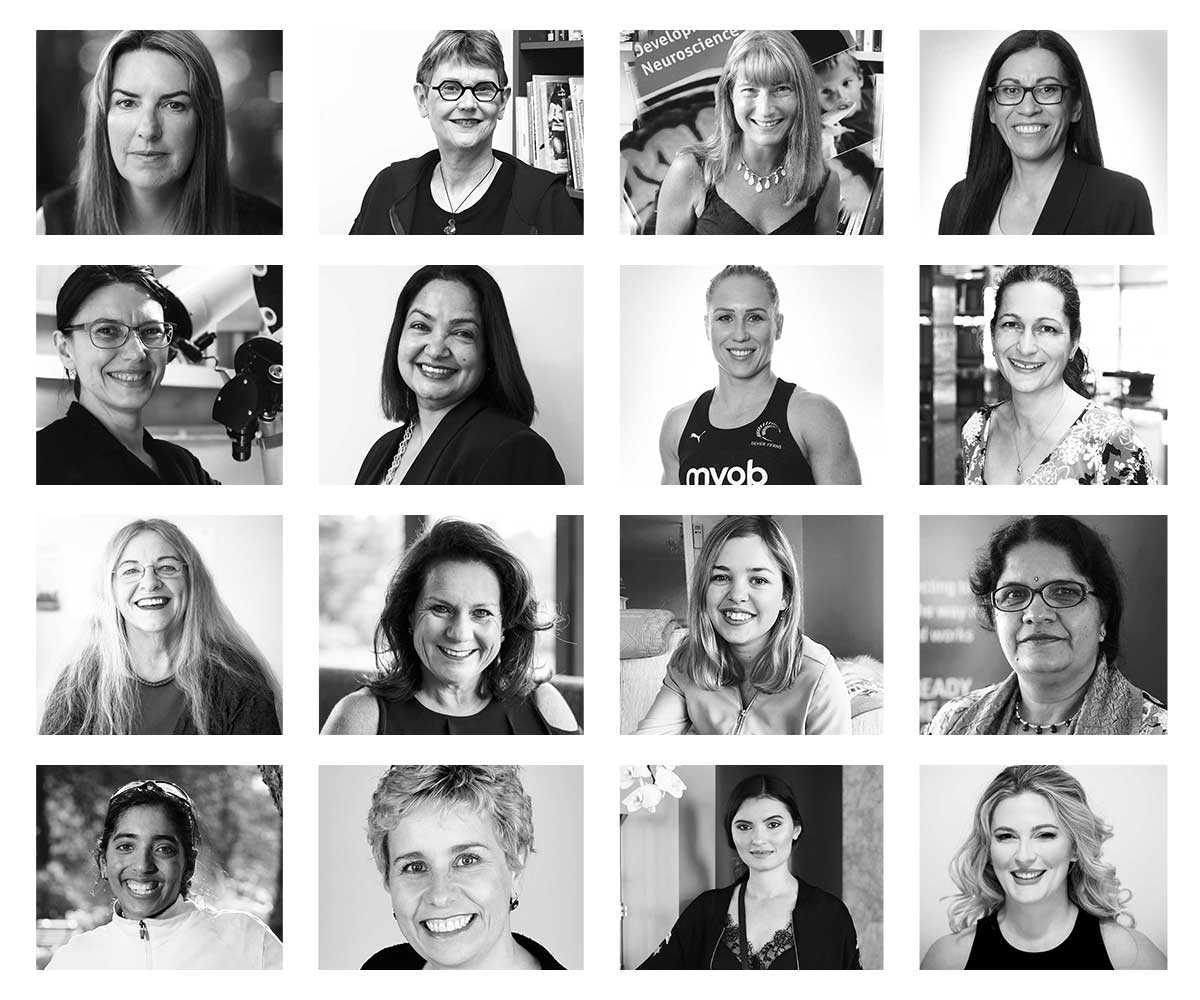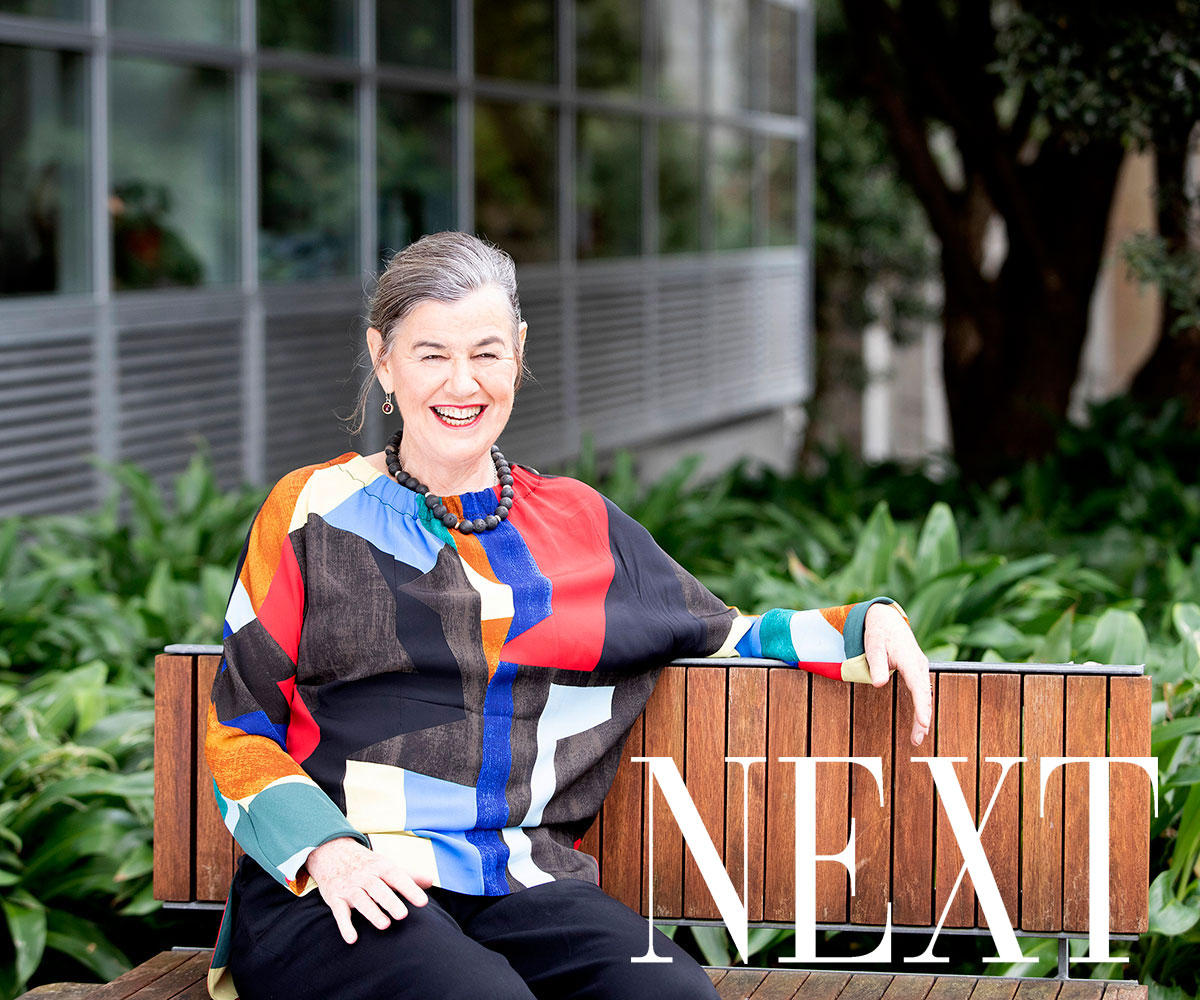Congratulations to these incredible women whose efforts and achievements have shone a light on important issues and made a difference to the lives of New Zealanders. They are to be celebrated.
Across six categories: Arts & Culture, Sport, Education, Community, Health & Science, and Business & Innovation, these women have shown what can be achieved with drive and genuine care for others.
We would like to thank prestige beauty brand Elizabeth Arden for their support and involvement for the third year running. “We are extremely pleased to continue to sponsor the annual NEXT Woman of the Year Awards,” says Elizabeth Arden general manager Valerie Riley.
“Our game-changing, rule-breaking founder, Elizabeth Arden, was herself a legendary innovator and entrepreneur who left an unmistakable mark on the beauty industry, so it’s certainly fitting that we honour and acknowledge these outstanding women.”
Diana Sarfati: Health & Science Category and Supreme Winner
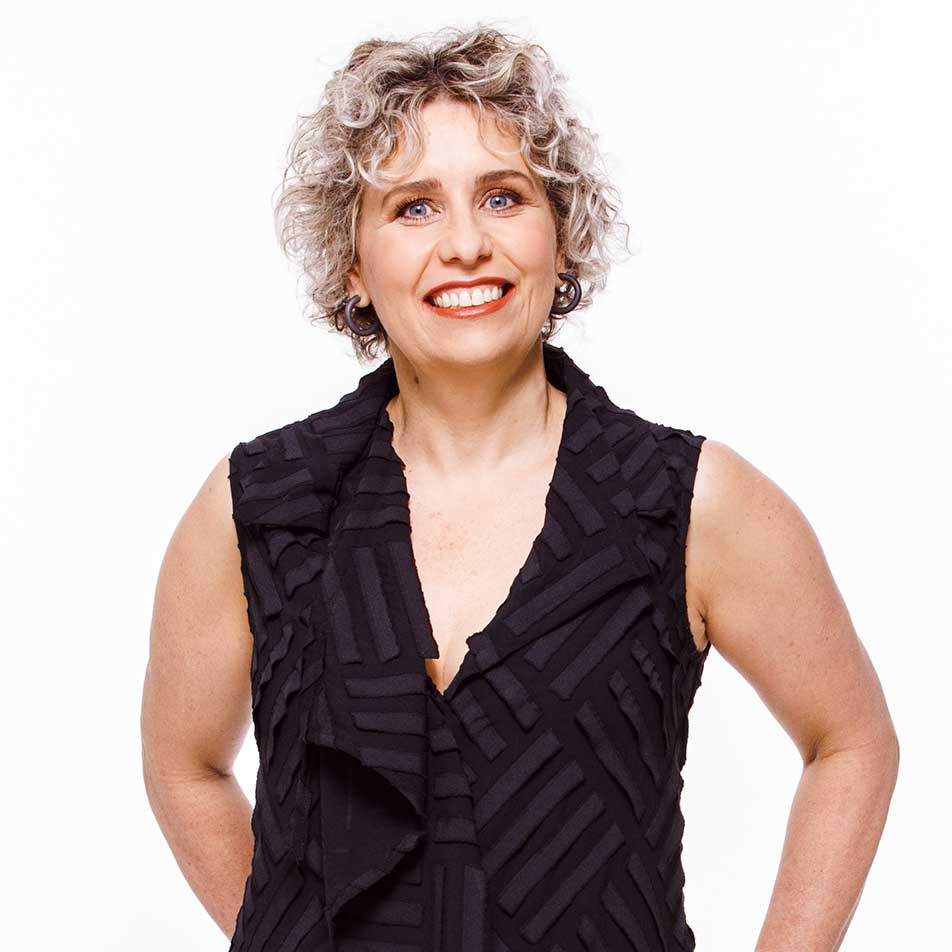
A voice for the vulnerable: Diana Sarfati is spearheading a drive to improve cancer outcomes for all Kiwis – especially those who the system has failed.
Enthusiastically endorsed as a NEXT Woman of the Year candidate by two top figures in NZ medicine, public health physician and cancer epidemiologist Diana was described as “a champion of the vulnerable” by one and a person of “international influence” by another.
Her work was labelled ground-breaking, authoritative, and definitive. Her impact? “More than what most doctors could hope to achieve in a lifetime.”
The University of Otago professor who, in August, was named interim national director of the government’s newly established Cancer Control Agency, is more restrained in her self-assessment. Not dwelling on the long list of achievements that led to her latest appointment – including the extent to which her research was the impetus for the government setting up the agency – she speaks instead of what motivated her to push for better cancer outcomes.
“It became clear to me there was a lack of leadership in relation to cancer, cancer treatment and cancer control here in New Zealand, and that we were probably starting to fall a bit behind the rest of the world,” she says.
Her solution was the Cancer Care at a Crossroads conference which she co-convened in early 2019. Bringing together stakeholders from the cancer community, including patients, clinicians, surgeons, oncologists, and members of the Ministry of Health, it was the launch pad for the history-making petition by terminally ill, Southland-based cancer patient Blair Vining.
Blair’s petition called for a national cancer agency to address – among other things – the ‘postcode lottery’ system that, in terms of access to cancer treatment options, heavily disadvantages those in certain parts of the country. Presented to parliament in July with more than 140,000 signatures, it seemed no coincidence that within weeks, health minister David Clark was unveiling the Ministry’s 10-year National Cancer Action Plan and, subsequently, the Cancer Control Agency.
Two weeks post-announcement, Diana is realistic about the work ahead, but raring to go. “It’s a big job, a daunting job. Anybody who doesn’t think it’s a daunting job obviously doesn’t understand the job,” she laughs. “But I’m excited to get a system in place that will allow us to do better.”
Diana must achieve three key things before the agency’s December 1 launch date. The first is sorting out its governance, without which, she says, “you can’t expect to make progress anywhere else”. The second step is consulting with the cancer community, to understand what its needs are. The third is ensuring all the work being done in steps one and two is going to reduce inequality of cancer outcomes; that is, the disproportionate impact cancer has on Maori and Pacific Islanders. It’s a cause Diana has been championing for the bulk of her career.
“Back in my early days as a clinician,” she explains, “it was sort of accepted Maori had worse survival rates, and that this was because they weren’t going to the doctor, they weren’t recognising symptoms, they weren’t taking up treatments they were offered – basically they weren’t doing what they were told.” Not satisfied with this narrative, Diana went on to prove there was little evidence that survival rates had anything to do with what the patient was doing, and much more to do with how the system served the patient. “So now I’m really thinking about how we make the system work better for all people, and for Maori in particular.”
One of the biggest challenges she faces is uniting the cancer community. “There are competing priorities and concerns, so it’s going to be about making sure those don’t derail the process,” she says. “The more we can get people to support and pull in the same direction, the more likely we are to make progress.”
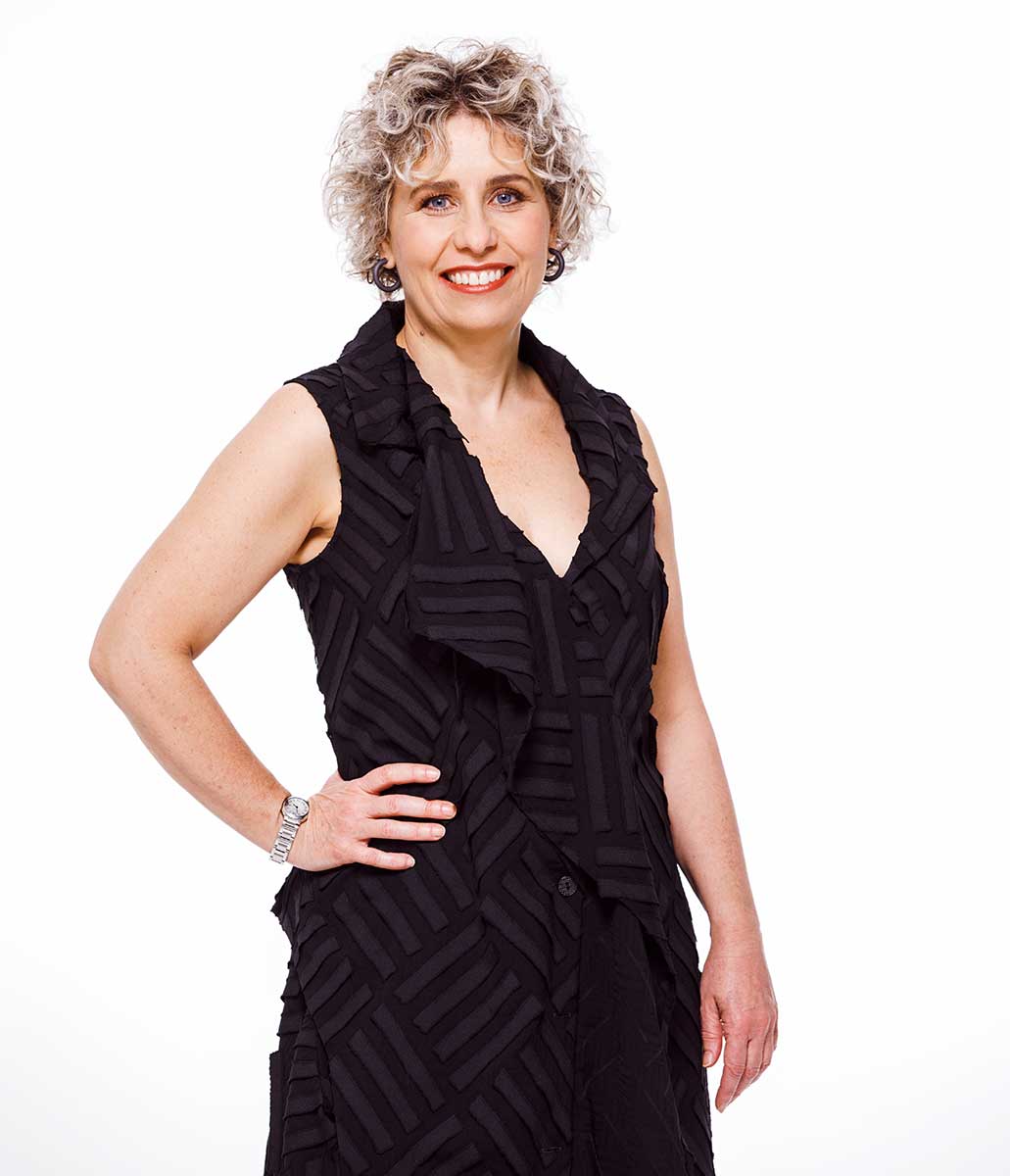
Having dealt directly with cancer patients and their families for many years, she is incredibly sympathetic of their individual priorities, and says if she were in their position – desperate for that miracle cure – she’d feel exactly the same.
“The unfortunate reality is no country can afford every possible cancer treatment,” she says. “There are some treatments that have proven to be extremely effective for the majority, and at the other end of the spectrum, those that have proven ineffective in most cases. In the middle, there’s this huge grey area [of treatments that vary in their effectiveness] and every country has to figure out where to draw the line.”
Diana knows she can’t draw a line that will address the needs of every individual. What she’s confident she can do, however, is significantly improve cancer outcomes for certain groups. Pointing out that 90% of cancer control and cure comes from early diagnosis, surgery and radiotherapy, Diana says a key focus of the strategy is to ensure all those things are working well across the board, which means setting quality indicators to see where the system is falling short.
“We don’t have that at the moment. If we did, we could look at differences between regions but also at differences between Maori and non-Maori. Once we find where the differences are we can start doing something about them.”
There’s no question Diana is up for the task. Drawing on decades of experience collaborating with a wide variety of people, and thinking about things from a number of points of view, she’s also emboldened by her ability to thrive under pressure. Case in point: many years ago, after the unexpected breakdown of her marriage, she suddenly found herself a single mother of three young children. “I had to make a decision whether I’d become disenchanted and bitter, or whether I could take a different path,” she says. “I chose the latter.”
Without question her children, now 16, 19 and 22, were – and still are – her top priority. But at that pivotal moment, she convinced herself she could be a good mum and still make a difference in the world, which was, she realised, what drove her in her work. In retrospect, she wonders whether she’d have achieved that clarity of purpose under less trying circumstances.
“It’s a cliché”, she says, “but tough times really do make you stronger. The collapse of my marriage threw a spanner in the works of my life at the time. But as is often the case with those sorts of things, you realise that a lot of what happens next – the good stuff – probably unfolds that way because of what you went through.”
Diana says the best thing about her children is they keep her feet firmly on the ground. “They’re my rocks,” she says. “It doesn’t matter who you are or what you’ve done, the first thing they ask when you get home is ‘What’s for dinner?’ Well,” she pauses.
“If something particularly big has happened, they might go ‘Well done Mum, that’s great’. But then,” she rolls her eyes, “the second question is ‘What’s for dinner?”
In the video below our category winners open up about their proudest moment, what drives them and what they’ve learned along the way. To see more great videos subscribe to our [YouTube Channel](https://www.youtube.com/c/nowtolovenz)
Helen Robinson: Business & Innovation Category Winner
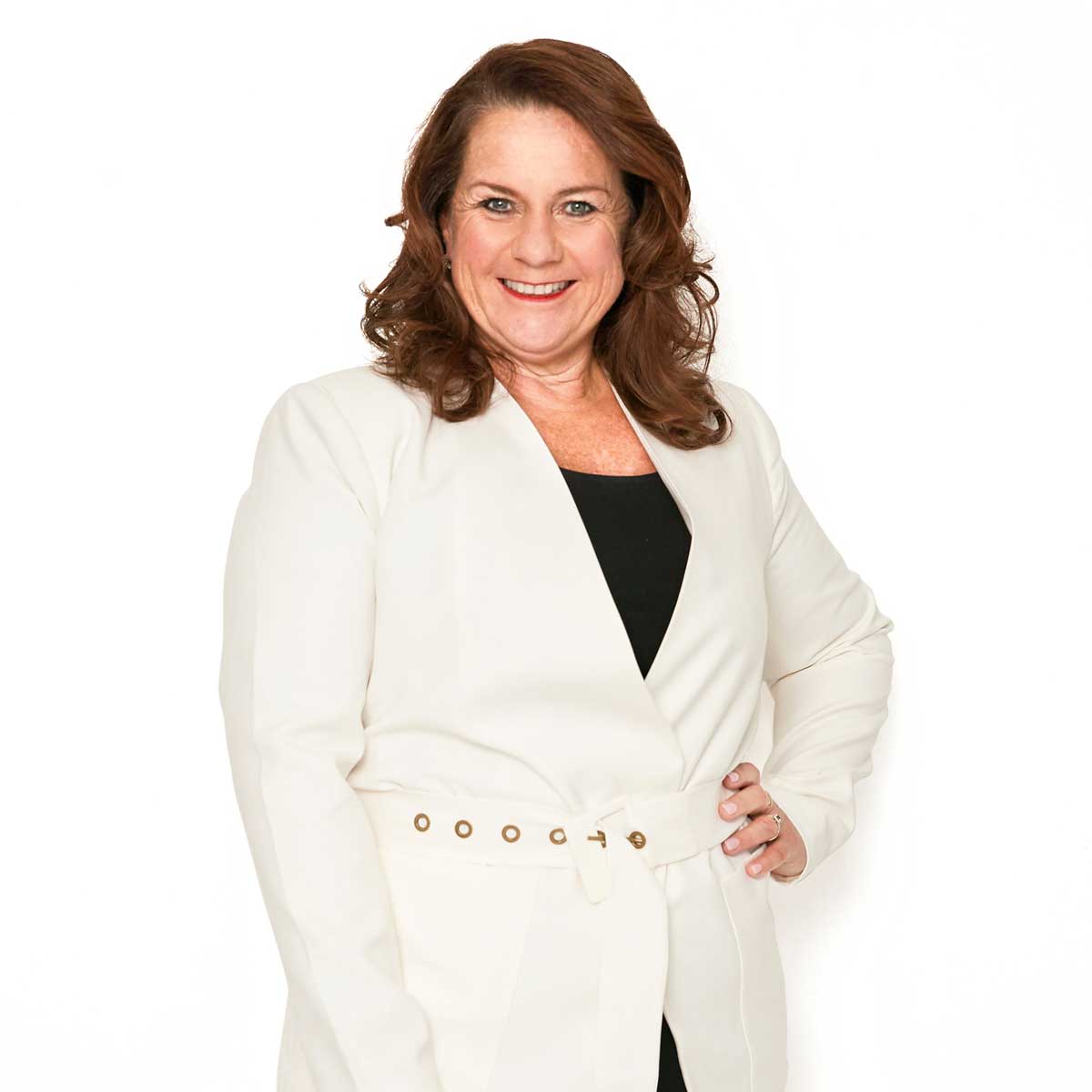
Ask Helen Robinson how long she’s subscribed to the philosophy ‘the bigger, the better’, she’ll say with a straight face “since birth” – and you’ll believe her.
An Officer of the New Zealand Order of Merit (ONZM) and now based in Los Angeles, the 54-year-old’s business credentials are impressive. Formerly managing director of Microsoft NZ, her resume includes co-founding and leading the world’s largest environmental asset registry, the TZ1 Registry, and being on the board of directors at NIWA, Fullbright, and Auckland Tourism, Events and Economic Development, among others.
For the past four years, however, her focus has been launching and expanding Kiwi-owned and operated feminine hygiene brand Organic Initiative (Oi). Its mission: to remove plastic and toxins from feminine hygiene products and present consumers with safer, more sustainable alternatives. It’s taking on some of the world’s biggest brands – and succeeding.
“We’re in 12,000 stores in the US,” says Helen, whose business mantra ‘Do good at scale’ underpins every decision – including not positioning Oi as a boutique brand. “World domination was the goal from day one. In the US, I get asked all the time ‘Why aren’t you in [premium grocer] Whole Foods?’ I understand it, because Oi is the perfect fit for them. It’s a certified organic, premium product. It’s largely biodegradable so it’s good for the environment – or at least, it’s as good as we can possibly get it right now. It’s also good for the consumer. But Whole Foods has 440 stores. Walmart has 4600 stores, and that’s where 20% of the population buy feminine hygiene products. So if we’re going to be true to our mission, why wouldn’t we target those mainstream retailers, and go head-to-head against mainstream products?”
As Oi co-founder and CEO, Helen wears many hats. Naturally, she’s across financials, and governance, and her priorities also include brand-building and educating the market. But what fulfils her most is interacting with customers in stores. In fact, it was her desire to better understand their wants that led to her moving to the US with her husband 18 months ago. “My experience working with the US is that to do it well, you have to be there. That on-the-ground perspective has been eye-opening. In LA for example, 40% of the population speaks Spanish. So suddenly you’re looking at the product on the shelf thinking, ‘Okay, there’s this huge Hispanic community, how do we stand out to them?’ It puts you into the psyche of the shopper.”
Testimonials from US customers whose periods have dramatically improved since switching to Oi are proof Helen and her team are getting things right. Back in New Zealand, where Oi launched in 2015, the feedback has been just as positive. “I had a woman in Christchurch come up and throw her arms around me and say, ‘Oi has changed my life.’ She used to bleed two weeks out of four, every single month. Now she only bleeds for three days, and changing to Oi is the only adjustment she’s made. If you want to know the most satisfying aspect of my job, it’s hearing stories like that.”
Another highlight is seeing young people converting their mums to more planet-friendly options. “Often mums will pick the box off the shelf and you can see their mind ticking over, but if they’ve got a teenage or Gen Z daughter with them, they get so excited, like ‘Mum, we can change the world with this!'”
Having increased Oi’s product offering from eight to 22, expanding into other categories is on the cards. But for once, Helen is taking it slow. “We could’ve delved into any number of things – soaps, body lotions, yoga gear. That would’ve been wrong for us. It’s important we stay focused right now.” Don’t think for a second Oi isn’t going places though. “If we could get to outer space I would!” Helen laughs. “The US is only our second market, so stay tuned.”
Samantha Scott: Arts & Culture Category Winner
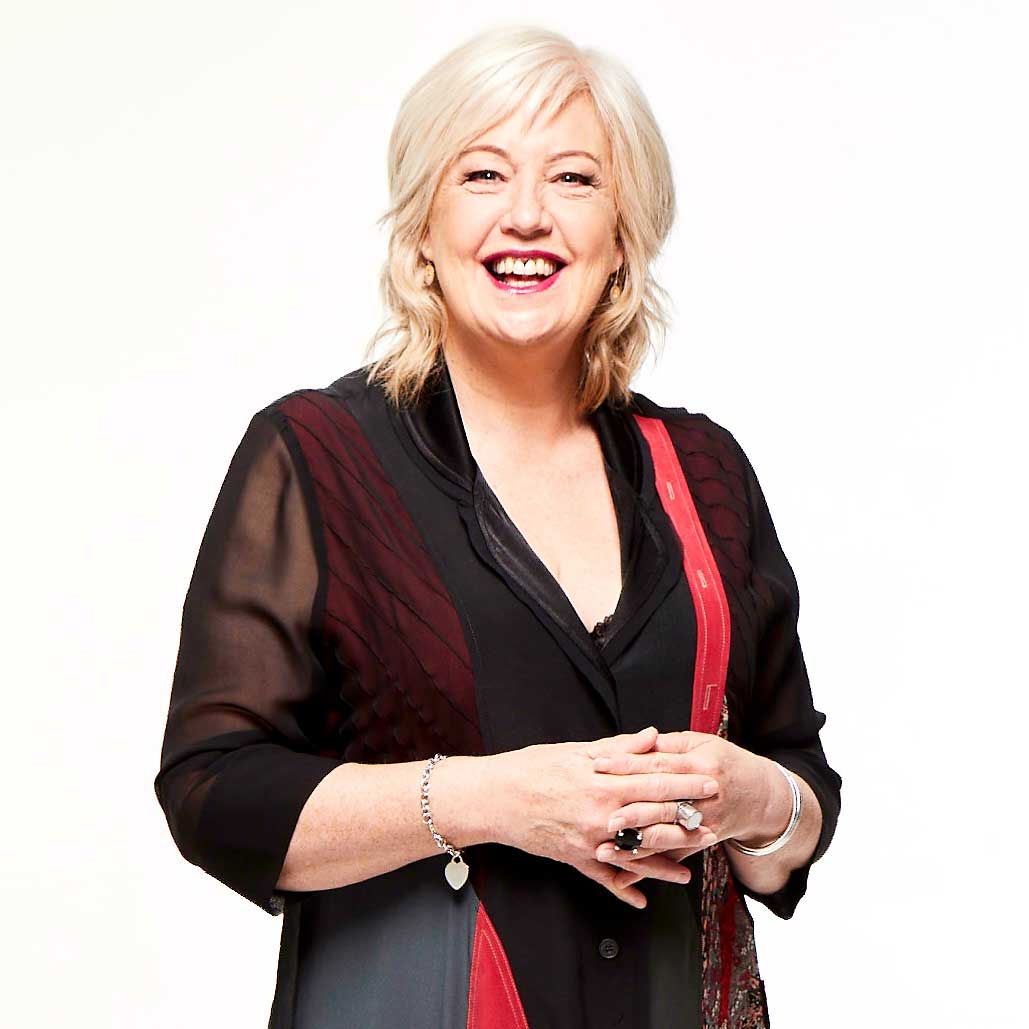
From a feminist family, Samantha Scott never doubted for a minute she would achieve whatever she set her mind to.
Her great grandmother was a suffragette, her nana was a unionist, and her mother has been involved in both the feminist movement and local politics. So it’s no surprise that after starting out in performing arts in the 1980s in a mainly male-driven climate, Samantha (Sam) has carved out a successful career and is today considered a tenacious visionary and role model for young female creatives.
“I’ve been clear from the beginning about what I value and what I’m standing up for. I’m not a soft woman, I can be quite staunch, and I’ve never questioned who I am.”
Sam founded Auckland-based Maidment Youth Theatre in 1991 – now the Massive Theatre Company – after starting out as a director at Northland Youth Theatre. She’d spent five summers driving up to Whangaˉrei regularly when the then director of the Maidment Arts Centre said, “Have you thought about starting something down here in Auckland?” Massive, now its 28th year, has enabled hundreds of actors to become successful, nurturing young talent through access to free workshops. It’s no small feat in a country that doesn’t have a lot of funding in this sector.
“It’s grown into what it is today because people have continued to want it to develop, particularly the people within it but also the audience saying they love the work.”
Massive only ever performs new works, either created by the cast or in conjunction with a writer. A focus on physical storytelling makes its work accessible to those who perhaps aren’t comfortable with highbrow theatre language, or for whom English is a second language. The company’s work also comes from real stories, with the aim of reflecting the rich diversity of Aotearoa.
After seeing a need within the company, Sam set up The Directors’ Lab in 2015: a mentorship scheme for emerging directors to practise their craft, incorporating conversations with industry professionals, and experimenting with theories and techniques. Sam runs it and extended it from Auckland to Whangarei this year. As well as leading the ‘Lab’, she was one of the first female directors on Shortland Street, and trained and supported several female directors over her nine years there (alongside running Massive).
She directed her first short film In My Father’s Shoes in 2005, one of three nominees for best short film at the NZ Screen Awards. In 2013 Sam was made a Member of the New Zealand Order of Merit for services to theatre. Sam has mentored countless Kiwi actors and directors including Miriama McDowell, Wesley Dowdell and Kura Forrester. Madeleine Sami (Sione’s Wedding and The Breaker Upperers) is Massive’s patron.
One of Sam’s proudest moments was “taking Mangere to London” when Massive production The Sons of Charlie Paora (which she developed and directed) became the first Kiwi theatre work invited to the iconic Royal Court Theatre. Some of the young South Auckland artists she’s mentored had never even made a trip into central Auckland before joining Massive.
Sam says it’s hard for young emerging artists if their families don’t understand what it is to be in the performing arts or value it. “I was talking to a young emerging artist the other day and she said, ‘I was choosing between being a doctor or a performing artist.’ You can imagine her family going ‘well…’ It can be hard if they have to navigate that on their own.”
Sam’s created an environment at Massive where it’s not okay to not be kind. “One of the reasons I started the company was I wanted to create my own culture and environment. I worked out early on I didn’t want to work with shitty or misogynistic people; I didn’t care how creative they were.”
For Sam, all the hard work is worth it if it means she’s providing opportunities for our youth and contributing to our cultural heritage. “I’ve got such a wonderfully rich life and enormous appreciation for the whanau that is Massive. It’s that wonderful Maori saying: He tangata, he tangata, he tangata. What’s the most important thing in the world? It is people, it is people, it is people.”
Dianne Daniels: Education Category Winner
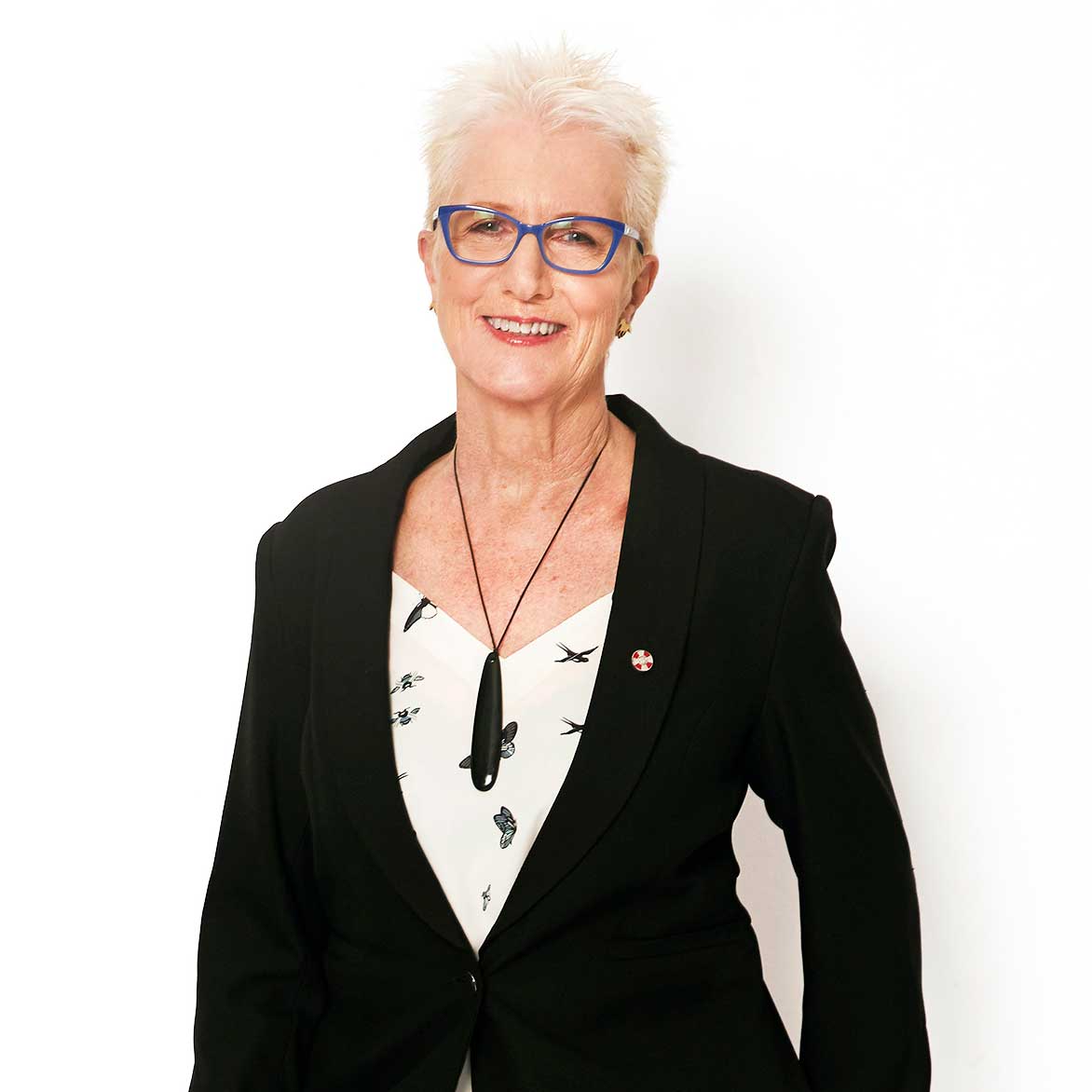
Dianne Daniels knows the impact access to digital tools can have on a person’s life. Two decades ago, the educator and MNZM recipient was on a course and, when the class began swapping email addresses, she was quizzed as to why hers was a joint account, with her then-husband.
“He was pretty good at pulling the wool over my eyes and blinding me with his techie talk,” says Dianne (Di) who, at the time repeated to the group her husband’s explanation – something vague about the computer being connected to his work.
“They fell apart laughing,” she recalls. “Then one of them set me up with my own Yahoo address, and I was like, wow! You hear about cultures where women aren’t allowed to drive, then they suddenly can, and there’s this immediate sense of freedom. I got my digital wings!”
Not just a clever concept or a cute phrase, Digital Wings is the name of the company Di founded in 2017, after a number of years heading up the government-funded Computers in Homes (CIH) programme, which saw refurbished, donated computers supplied to more than 20,000 families with children enrolled in low-decile schools.
Faced with regular requests from charities and community groups who didn’t fit the criteria, she’d do her best to help locate cheap computers elsewhere. But she couldn’t shake the feeling she could be doing more. With businesses also lining up to donate their old machines to non-qualifying groups, she eventually brokered a deal with RemarkIT Solutions – the company contracted to CIH to security wipe and reimage all donated computers – which would make such exchanges viable. Digital Wings was born.
“If I’d asked for permission to do it I probably would have been told no,” says Di, who worked another three years for CIH before Digital Wings became her sole focus. “But whereas there are people who like to do things right, I like to do the right thing. It just seemed like the right thing to do.”
From a Napier charity that helps disengaged youth find work, to an agricultural training institute in Taumarunui, Digital Wings has equipped hundreds of Kiwis with the tools and know-how to compete in the modern world. Its ethos is inherent in its tagline – ‘Aspiration and Opportunity’. “The community has its own aspirations,” says Di. “I’m not about to tell them what those should be. But by giving them access to digital resources and improving their digital literacy, we create the opportunity to achieve those aspirations.”
Making it a no-brainer for businesses looking to upgrade their IT offering but troubled by the admin and expense of moving all that e-waste, Digital Wings doesn’t just collect old computers from the donor, it retrieves them from the recipient once they’ve lived their second life – safely dismantling and sustainably disposing of them, and replacing them as needed. Donors also receive comprehensive reports from Digital Wings, detailing the real-life impact of their donations on recipients.
“So there’s every reason for a business to get on board, and no reason not to,” says Di who, having secured three years’ funding for Digital Wings from the Ministry for the Environment, is now focused on training the right talent to take the programme to its next phase.
“I don’t believe in hoarding skills,” she says. “I’m a mentor kind of leader. I see leadership as not just leading, but creating other leaders. That’s been a pattern throughout my career, empowering others. If you’re empowering others in that education space, giving them the tools to be independent and to take destiny in their own hands… it goes out like a ripple. That really spins my wheels.”
Neelu Jennings: Sport Category Winner
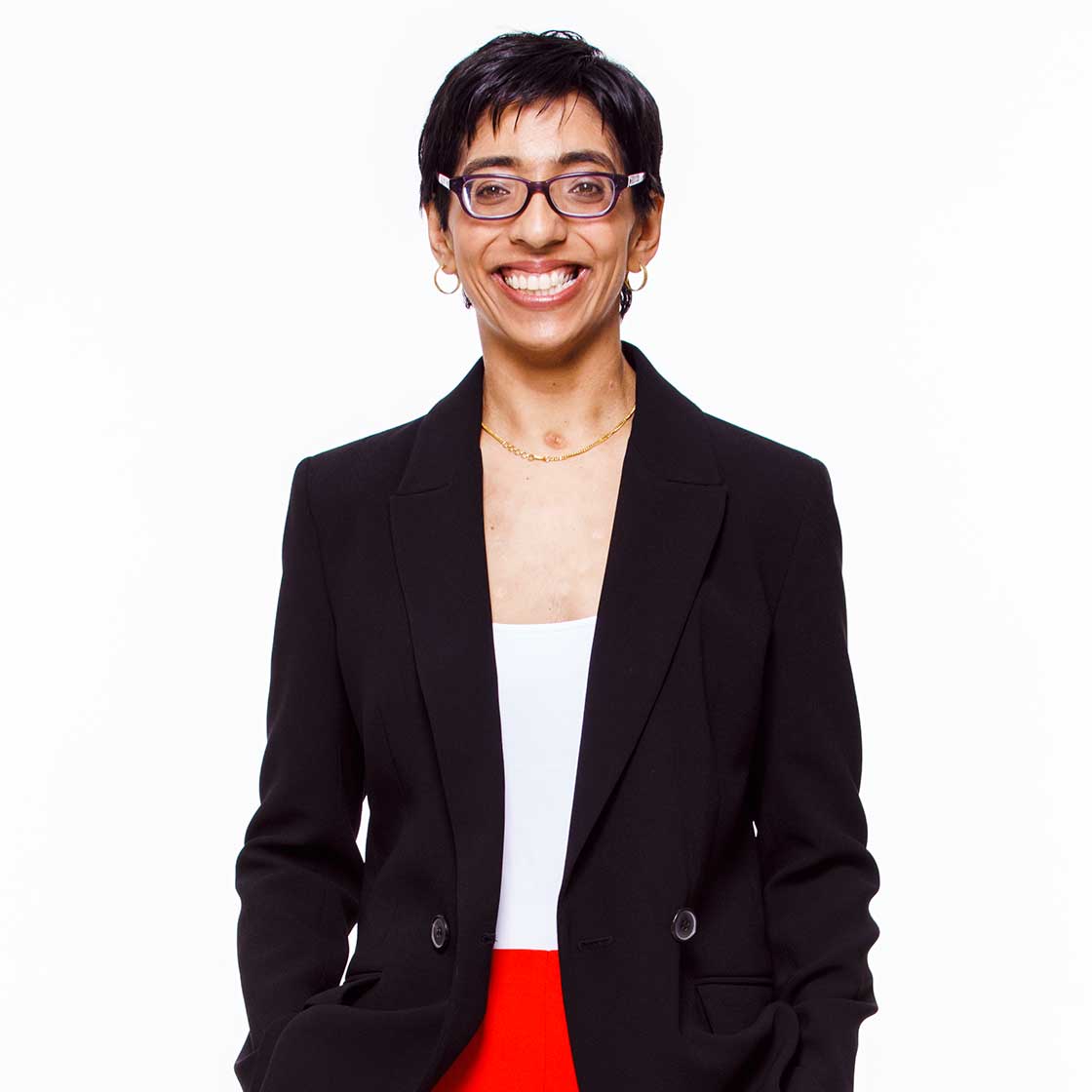
In 2014, Neelusha Jennings (then Neelusha Memon), was feeling decidedly woozy when boyfriend Oliver Jennings proposed to her at the top of Mount Kilimanjaro, Africa’s highest peak.
“The joke is I said yes because I had altitude sickness, and that he asked me because he had altitude sickness!” In 2016, they got married. Last year, they had daughter Anya. Those were three joyous events in the life of a woman who has endured much.
Neelusha (Neelu), who lives in Lower Hutt, grew up in Christchurch. At 16, the keen sportswoman had been attending a snowboarding academy when she began coughing up phlegm. At hospital a doctor said it was flu and admitted her overnight for IV fluids. “Mum got a call at 4am saying I’d lost consciousness.” Neelu had the rare auto-immune disease Acute Disseminated Encephalomyelitis.
Marked by sudden, serious inflammation in the brain and spinal cord, it also attacks the central nervous system. Neelu suffered a massive brain injury and spent four months in a coma. After waking, she couldn’t talk, walk, swallow, sit up or even see, with atrophied muscles. She cried every day, struggling to accept her state. She started painful, pain-staking rehab, spending eight months in hospital. She recovered most functions, but her balance and coordination are impaired and she’s legally blind. Although she can see shapes and colour, everything is blurred.
We’re chatting at Neelu’s home while Anya sleeps and Ollie’s at work. Neelu met him at an alpine club in 2013 after he offered to train with her. While it hasn’t been easy, she refused to let disability stop her from becoming a mum. “It’s incredibly hard, but such a joy. With Anya, I’m just nervous about not seeing everything, so I only walk around the block.”
Now 35, Neelu has set herself physical challenges ever since that initial rehab. “I wanted to see where I could get to.” She’s got to a lot of places. Starting cycling aged 19, she’s competed in the Paracycling World Champs, heli-skiied the Tasman Glacier, and climbed Mounts Kilimanjaro and Aspiring, among other achievements. She’s the first legally-blind person to complete multisport races the Crazyman, the Spring Challenge, and the Coast to Coast.
How has she done all this? Financially, with sponsorship, fundraising, and help from her parents. Practically, with support from able-bodied people, particularly mountain guide Gavin Lang and adventure-racing champion Nathan Fa’avae who kayaked Cook Strait with her. Neelu had to persuade Coast to Coast organisers to let her race with supporters, but ended up inspiring them to establish a tandem-team category of one person supporting another.
She wants us to reframe the way we see support and “to see that giving and receiving support is rewarding, not a weakness or a chore.”
In 2014, she began the campaign (now charity) ‘Limitless with Support’ to forge links between able-bodied and disabled people. “I want integrated sport to be big.” Integrated sports see able-bodied and disabled people play together in social teams (rather than having separate teams for the disabled). She’s led the way at a local level. With Hutt City Council’s help, she’s begun a weekly ‘sitting volleyball’ club and is helping plan the pilot for Walking Rippa (walking rugby).
She’s also lobbying sports clubs to extend membership to disabled people. Neelu recently spoke to Sports NZ CEO Peter Miskimmin about how sports could help integrate disabled people in their communities. “Because where are most disabled people right now? At home. Shut away. That’s not how I’m willing to live my life and other people shouldn’t have to.”
Neelu has long advocated for disabled people. With a Master’s in disability policy, she moved to Wellington in 2012 to intern for Mojo Mathers (Greens’ disability spokesperson). She became adviser to the Minister of Disability Issues, and spent three years at CCS Disability Action. Last year she convinced Wellington City Council to set up Accessibility Awards for businesses, initiatives and people helping to make the city accessible. Disabled and able-bodied people have told Neelu she’s inspired them to attempt big challenges. One of hers is to become the first legally-blind woman to climb the highest peak on every continent. “I feel limitless with support.”
Zhiyan Basharati: Community Category Winner
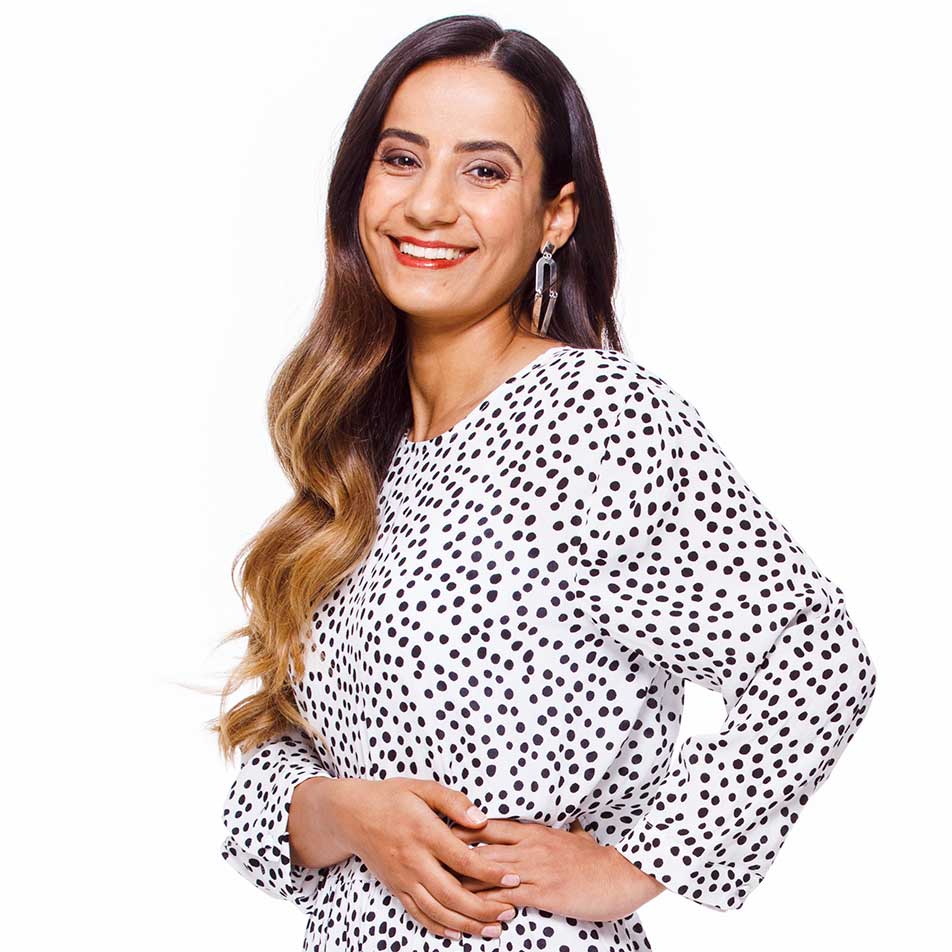
On the afternoon of March 15, Dr Zhiyan Basharati was looking out the window next to her brother’s bed in Christchurch Hospital (he’d had surgery). “I could see the Armed Offenders squad and police outside.
“Then I saw cars pull into the ambulance zone, unloading bodies and people covered in blood.” They looked Muslim. Then my sister called to say there’d been a mass shooting in our [Al Noor] mosque. My body felt numb. I couldn’t believe this could happen here.” Zhiyan immediately called family members. None were at the mosque – though Zhiyan and her brother were originally meant to be there then.
As her doctorate is in forensic psychology, she couldn’t help medically. So she gave her phone number to hospital staff, offering to speak in Kurdish to overseas relatives who’d called. After she shepherded families into the hospital’s chapel, then its café, she marshalled a team of volunteer translators who spoke Arabic, Farsi, Urdu, Somali or Kurdish. They began phoning relatives back.
“At 4.30am, when I left the hospital, I saw so many texts and missed calls from my community members and organisations. People wanted help. Or wanted to know how to help.” She got an hour’s sleep. “That morning, the police announced a list of injured people, saying ‘If your loved one isn’t on the list, they’re at the mosque’. I drove to Hagley College’s welfare centre, crying.” Many of the 51 killed and 49 injured were friends or acquaintances.
Zhiyan, 29, began coordinating the welfare centre. Her volunteers worked alongside Civil Defence, police, Canterbury District Health Board, the Red Cross, medical staff and mental health workers. The day after the tragedy she got volunteers to set up Facebook page Christchurch Victims’ Organising Committee (CVOC) to update people desperate for news, especially far-flung relatives. The page soon had 7000 followers. “The media wasn’t getting any inside information, so only we were sharing pictures and video clips [from the welfare centre].”
Two days after the shootings, Zhiyan had to cap the number of volunteers at 2000. These people – Muslims and non-Muslims, from teenagers to the elderly – staffed the welfare centre’s sections: transport, food, accommodation etc. They comforted families and even helped arrange funerals.
“Every morning we visited the hospital and recorded everyone’s details. We asked if they were refugees, residents, or had work visas. We asked what services they’d received and what they needed, so we could follow up.” She helped with pressing issues, including immigration status, visas for visiting families, and accessing counselling, accommodation, food and living costs. She got 10 hours’ sleep total during the week she led the centre.
Zhiyan then began leading the CVOC (now a registered trust) from an office provided rent-free by Phillipstown Community Hub. The CVOC doesn’t collect or distribute funds, and liaises with – but isn’t affiliated to – government organisations or agencies like Victim Support. “We’re about practical support and advocacy. Our volunteers delivered 380 boxes of donated goods in the first two months to those directly impacted.”
She’s visited survivors and victims’ families at their homes. Many were still in shock. “They trusted me because they knew me or my family. One day, delivering donated goods, I visited 12 families. Then I had my first-ever [and only] panic attack.”
Zhiyan realised better information – and advocacy – were needed to facilitate the distribution of funds. Lawyer Andrew Oh volunteered as a legal advocate for this process. “We created a consultation form for victims regarding how they and their families wanted the money split.” This process is ongoing. Zhiyan is also lobbying ACC to help those with post-traumatic stress and psychological trauma.
“I know trauma,” says Zhiyan, who spent her first 11 years in a refugee camp with 15,000 other Iranian Kurds where violence and raids by the Iraqi army were rife. Over the years she’s done a huge amount of unpaid community work, largely for refugee groups. “I do this to promote equity, belonging and inclusion in our society, regardless of religion.”
The Topp Twins: Lifetime Achievement Award Winners
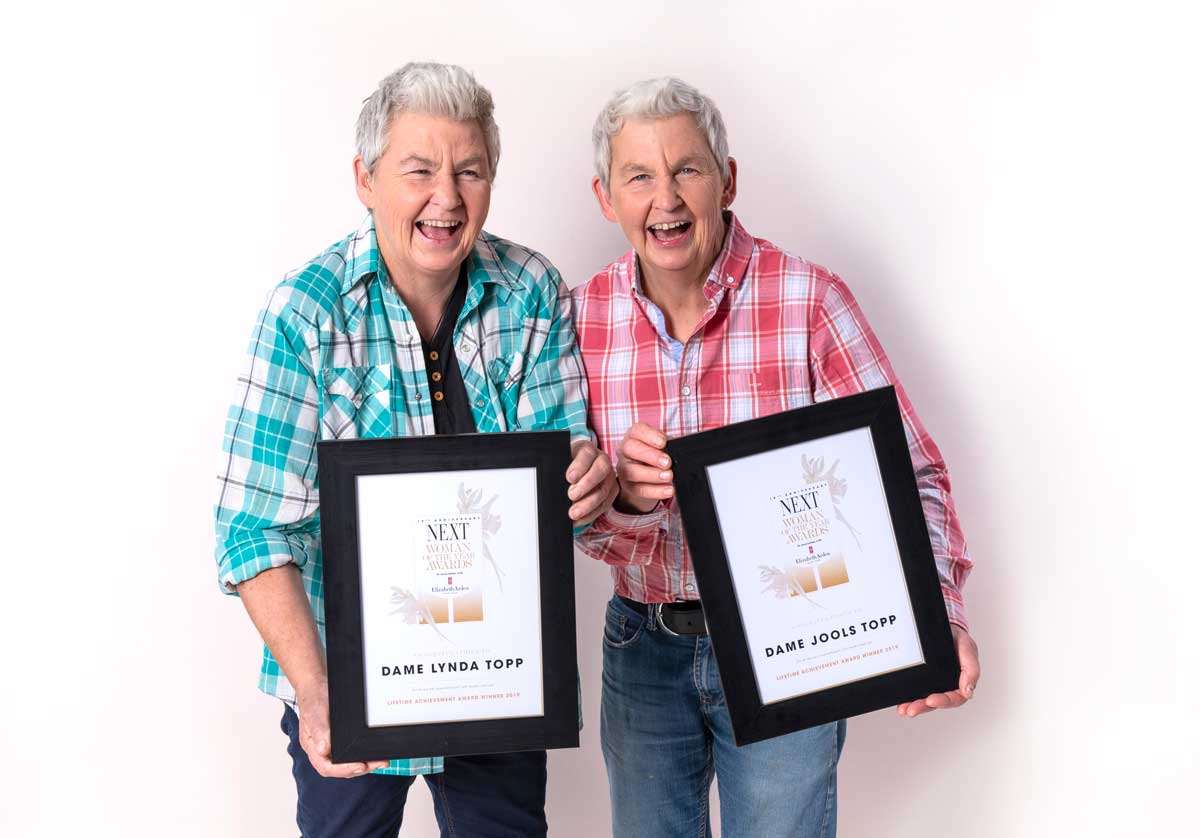
They grew up singing into their hairbrushes and to the cows on the family dairy farm in Ruawaro, Waikato, and their parents Jean and Peter Topp raised them to believe they could do anything.
Iconic folk singers Dames Julie (Jools) and Lynda Topp began their careers busking on the street in the late ’70s. As they rose to fame they used their platform to fight for social justice during a number of campaigns – the Springbok tour, Maori land rights, and a nuclear-free New Zealand. Staunch supporters of the LGBTI community, they were outspoken backers of the Homosexual Law Reform Act of 1986 that led to the decriminalising of gay sex. They’ve raised awareness of breast cancer, which Jools fought in 2007. They became Members of the New Zealand Order of Merit in 2004. Last year, they were made Dame Companions in the Queen’s Birthday Honours.
Now 61, the sister comedy duo have cemented their place in the hearts of Kiwis, changing not only the country’s comedic scene but its social fabric too. Their ability to connect with people from all walks of life is a key component of their success.
Their first big break was playing at The Victorian Coffee Lounge, where they were paid $5 and “all the toasted sandwiches they could eat”. Through music they’ve raised awareness of women’s rights; in 1977 they sang original song Paradise at the International Women’s Convention in Hamilton.
They wrote Freedom in honour of International Women’s Day and performed it at the 1979 United Women’s Convention, urging the audience to stand up for what they believe in. It’s a song the twins regard as their first feminist song, and it represents their ability to fight on despite prejudice. One of the twins’ best-known songs, Untouchable Girls, challenges people to “stand up and have guts” to change the world. Its lyrics celebrate the twins’ individuality, sexuality, and activism.
On what success means to her, Lynda says simply: “There’s no point being successful if you’re not happy. Our success means we’re happy and we make people happy. It’s always nice to be able to afford the groceries and have a car, the basics of life, but if you’re not happy, you’re not successful.”
She feels most proud that they stood up early on in the piece about their sexuality and beliefs. “If everybody stays true to themselves, that’s a great success. There are the lefties and the righties in this world but if everybody stays true to themselves, you know who they are. We’re pretty proud we feel like we’ve been accepted, and haven’t had to compromise in any way.”
Her advice to others striving for success is to never give up. “Don’t be scared if you’ve got an idea. If you think it might work, the only way you’ll figure out whether that’s going to work is if you have a go.”
The twins couldn’t make the NEXT Woman of the Year event to collect their Lifetime Achievement Awards, but they did have a special night planned with the next generation of women in their lives; Lynda’s granddaughter was celebrating her first birthday. Lynda and Jools’ mother Jean, 88, was also with them. “We never thought we’d have an extended family. I mean the whole family is gay so I don’t know how this happened,” Jools laughs.
“But what’s really cool about it is we can share children with other families and other partners, which Lynda is lucky enough to do. So for us winning [NEXT’s award] is a great Lifetime Achievement, but to have a little girl in our lives and for her to have a beautiful new world, that’s our life-time achievement really in a lot of ways.”
